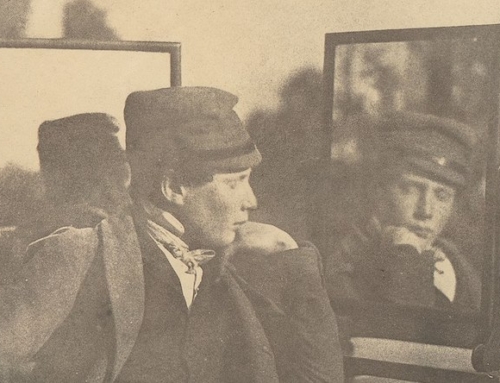When you obey someone’s words, something of the mind of that person becomes a part of you.
You experience this every time you pull up to a stop sign: as you slow down your car, the plan of the lawmakers who instituted that sign become a part of the way you drive.
Or, if you’re on a basketball team, and you internalize the coach’s playbook, his vision of the sport becomes a part of you, transforming the way you think about the game.
This same principle doesn’t just apply to laws and instructions, but it also holds true for art and philosophy. So, if you’re a Jane Austen fan, the more you enter into her novels, the more you adopt her worldview, the more your mind becomes like hers, so that her way of thinking ultimately shapes who you are.
When a disciple truly accepts the words of his teacher, that ideology or way of thinking becomes a part of him; it’s through making the ideas of the teacher his own that the disciple becomes like his master.
Christ is the teacher and we are the disciples. In the words of Saint Paul, we “put on the mind of Christ” through faith (Phil 2:5). Through our obedience to Christ’s word, we begin to think and to see the world as Christ sees it. We put on the mind of Christ insofar as we adopt his way of thinking.
But, if we stop here, do we have an adequate description of our relationship with Christ?
The Christian life doesn’t boil down to a way of thinking, or a relationship with Christ’s ideas. It comes down to a relationship with a person. To be a Christian is not to belong to an ideology that shares the same worldview. To be a Christian is to be a member of God’s family: to have Christ as my brother, and God as my Father. To be a Christian is not to adopt a way of thinking, but to be adopted as a child of God.
We enter into this familial relationship with God through the assimilation of our minds to God’s divine mind: it’s through our graced obedience to God’s Word that the person of Christ enters our hearts.
For unlike others whose words we obey—unlike the lawmaker, the coach, or the novelist—we can’t separate Christ’s person from his words. With human authors, it’s possible for us to fully immerse ourselves in their words without coming to really know them. When I read Jane Austen’s books, I grasp her words, but who she is personally remains to some extent beyond my reach. This is because she, as a person, is distinct from her words.
But Jesus is the Word of God. That’s his personal identity. He is the Word that the Father eternally speaks.
So when the Word of God enters our hearts, it’s not just an idea that’s entering in, but Jesus Christ himself.
For this reason, the more we allow the Word of God to penetrate our minds, our hearts, and our actions, the more we come to know Christ as our very brother.
✠
Photo by Ben White







